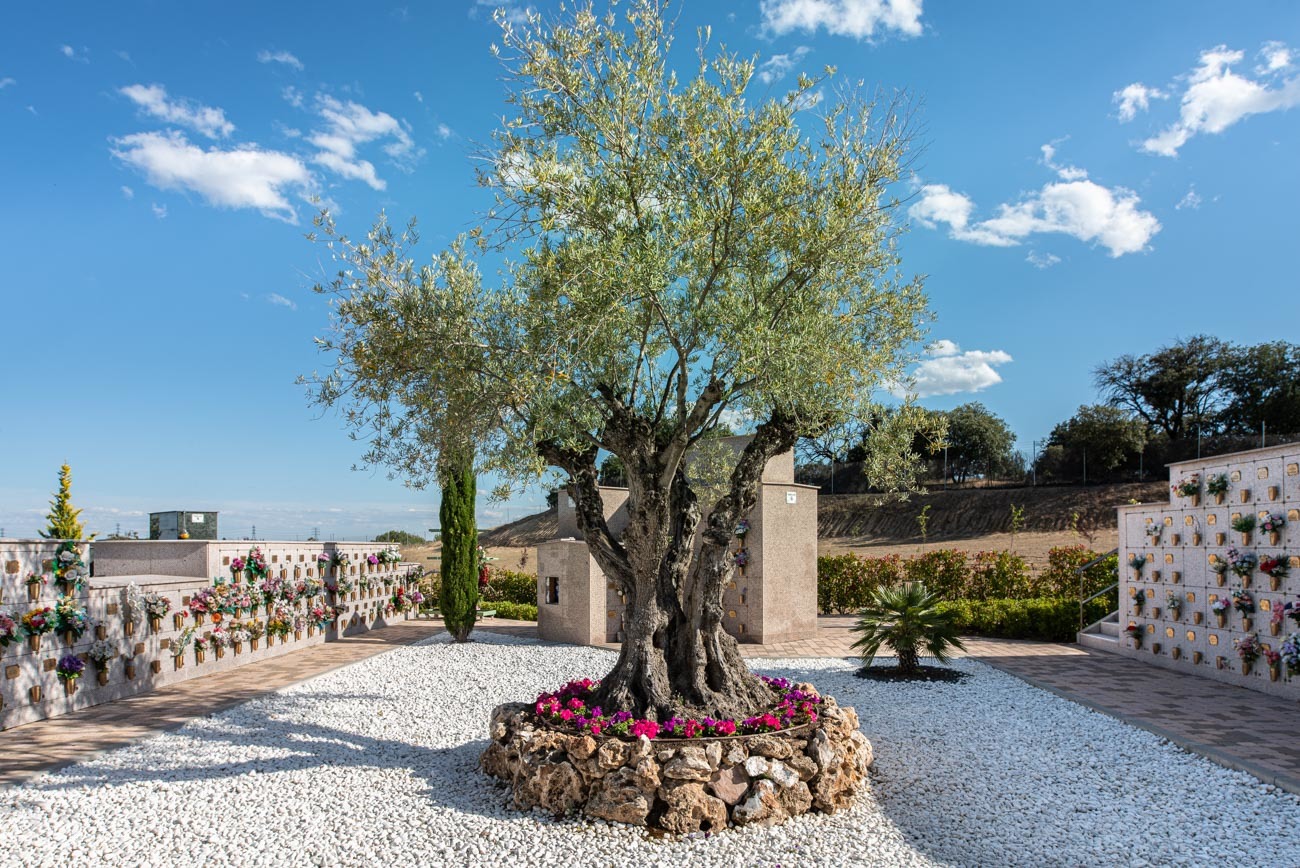According to the latest data published by the National Association of Funeral Services (Panasef) in its annual report on the sector, in 2020 in Spain
493,776 services
of this type were carried out.
The sector, which had a turnover of around 1,700 million euros -which represents around 0.15% of Spanish GDP-, evolves together with society and incorporates technologies and environmental solutions.
However, he also faces the challenge of doing it hand in hand with his clients, with whom he must manage the duel, and the taboos that surround death.
"Beyond the funeral sector, I believe that in practically any sector today the client is sensitive to everything that is respect for the environment," says
Rafael Urío
, general director of Parcesa.
The firm, which operates in Madrid, has a fleet of hybrid or electric vehicles (the latter, for employees who provide advice or to move around its cemetery park; in long distances they still suffer from their autonomy), funeral homes with LED lighting or photovoltaic panels and even systems to take advantage of the heat generated by the conversion units -the crematorium ovens- to
air-condition the facilities
.
Francisco Enríquez
, Vice President of Panasef, agrees with Urío: "All the development of eco-sustainability is given or promoted by the companies themselves because we are adapting to what society is demanding in general, whether they ask us expressly or not".
And it is that, unlike practically any other sector, the funeral home is one with which, from the outset, nobody wants to deal, but the entire population must do so sooner or later.
Hence, everything must be approached from respect for the planet, but always also with the deceased person and with the duel.
"At the product level, most of those that are being incorporated and all the novelties come in the ecological field: the chests are already mostly ecological, in the polls there is a very strong trend
towards biodegradable
, all the polluting products (especially in those services whose final destination is incineration) and, as a general rule, in all secondary products, efforts are being made to reduce all polluting components, such as plastics," Enríquez details.
Thus, for example, the shrouds already dispense with this material and in the watertight coffins, which are mainly used in long-distance transfers, the zinc of the internal boxes is replaced by biodegradable bags "absolutely ecological and with all the safety properties required by law".
An ecological end
In recent years, cremation in Spain has been gaining ground over burial in Spain, where there are 487 ovens that carry out 611 cremations every day.
In fact, the sector forecasts that in 2025 it will be the preferred option in 60% of cases (in 2020 it was in 45.18%, almost 30 points more than 16% in 2005).
From an environmental point of view, its main problem is the
polluting emissions
it entails, especially when consuming gas.
However, an analysis by the Funeral Services Foundation of Paris asserts that, in reality, it is a more environmentally friendly option than traditional burials when they use materials such as concrete or imported granite, due to the carbon footprint. which has its production and transportation.
La Paz Cemetery Park.Parcesa
In any case, the two have also evolved where possible.
"All the coffins that Parcesa has are ecological," details its general director.
"This means that we do not use dyes and that for the internal lining we use mostly non-polluting elements," he describes.
The same goes for the ballot box.
Meanwhile, cremation uses
filters that reduce its impact
and makes its emissions, according to Uría, "well below" the maximum emission parameters.
Enríquez also avoids this technology, with which contamination is minimized and the "quite strict" Spanish legislation is complied with.
celebrate life
Perhaps the measure that best reflects this point of convergence between the environment and mourning is something that several firms in the sector resort to: giving away small trees that serve as a memory of the deceased.
In the case of Parcesa, the program is called 'A tree, a memory', it has existed since 2009 and each year there are some
50,000 trees
, 2,000 of them only on All Saints' Day.
"In my specific case, my father passed away three years ago and I have a small tree planted in my garden that I received from Parcesa and that I take care of carefully because it has a lot of meaning," acknowledges Urío, who believes that families see it in the same way: "
One life goes out, but another is born
".
"I think we are experiencing an evolution that some countries have already overcome: that taboo to talk about death," explains the manager.
Trees from the program 'A tree, a memory'.
"Little by little we went from a concept of death that is the pain of losing a loved one to a scenario of celebrating the life of the loved one," he highlights.
And he believes that the sector's conception of the process, care for the environment included, helps: "It is helping to bring out the positive things, which will
also help in the management of grief
; it is not the same to celebrate life and what It has given us a loved one to try to manage the pain that this produces.
Thus, they are beginning to see people specifically requesting an ecological funeral service, although it is not yet a very widespread demand.
Enríquez, for his part, believes that it is "a reflection of society."
"Society is changing and young people have instilled the ecological issue from a very early age," he argues.
"In the end, we are a sector that adapts to what surrounds us, we see the new trends, which go along a sustainable line, and we are trying to make an effort and put all the creativity possible to incorporate it," summarizes Enríquez.
Conforms to The Trust Project criteria
Know more
Environment
Articles William of the Palace

